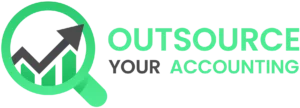As we continue to navigate through 2023, the evolution of the world of work becomes more apparent. Remote auditing, once a concept relegated to the realm of theoretical discourse, has now become the norm rather than the exception for many businesses worldwide. The way we conduct business, particularly in the auditing field, has undergone a dramatic shift.
This unprecedented transition, catalyzed by the COVID-19 pandemic and the rapid advancements in technology, has left an indelible mark on virtually every industry. Accounting, an industry traditionally reliant on in-person and paper-based processes, has not been spared. As we delve deeper into this new era of remote work, it’s essential to acknowledge and address the challenges and solutions that come with it.
Understanding Remote Auditing
At its core, remote auditing, also known as virtual or online auditing, is the process of conducting audits from a location different from the client’s. This method of auditing leverages advanced technology, enabling auditors to gather and analyze data without the need for physical presence.
This evolution in auditing is a direct response to the increasing trend towards remote work and the digitalization of business processes. As businesses continue to transform their operations digitally, it’s only natural for auditing practices to evolve in tandem. Remote auditing represents a significant step in this direction, reflecting the changing landscape of work and the ever-increasing digital nature of business operations.
Challenges in Remote Auditing
Transitioning to a remote environment is not a walk in the park, it poses its own set of challenges. From data security and privacy concerns to communication and collaboration hurdles, remote auditing requires careful navigation. Let’s explore these challenges in more detail.
1. Data Security and Privacy
Data security and privacy pose significant challenges in the era of remote auditing. As auditors access sensitive financial data remotely, they are faced with the task of ensuring this data remains secure. A report by IBM reveals that the average cost of a data breach in 2022 reached $4.35 million, highlighting the criticality of this issue.
2. Communication and Collaboration
Effective communication and collaboration are vital to the auditing process. However, the lack of face-to-face interaction inherent in remote work can lead to miscommunications and misunderstandings, posing challenges for both auditors and clients.
3. Dependence on Technology
Remote auditing is heavily reliant on technology. This dependency means that auditors are at the mercy of their technological tools. Technical glitches, software compatibility issues, and unreliable internet connections can all potentially disrupt the auditing process.
4. Access to Information
Traditional auditing often involves physical access to documents and direct interactions with employees. In contrast, remote auditing necessitates a shift to digital records and virtual interactions, potentially making access to necessary information more challenging.
Solutions to Thrive in Remote Auditing
Despite these challenges, the world of remote auditing also presents unique opportunities for auditors. With the right strategies and tools, auditors can not only overcome these challenges but also leverage them to their advantage.
1. Implementing Robust Security Measures
Robust security measures are vital to ensuring data security. Secure virtual private networks (VPNs), two-factor authentication, and encryption are all effective ways of securing data. Regular security audits and employee training on cybersecurity best practices can also enhance security.
2. Leveraging Communication Tools
Various digital tools can facilitate effective communication and collaboration. Real-time interaction can be enabled by platforms like Zoom and Microsoft Teams, while project management tools like Asana or Trello can help manage tasks and deadlines.
3. Investing in Reliable Technology
Investing in reliable and compatible technology is crucial for remote auditing. This could involve ensuring stable internet connections, using compatible software, or adopting cloud-based audit management systems.
4. Embracing Digital Transformation
Embracing digital transformation is key to succeeding in remote auditing. This could involve encouraging clients to digitize their records or fostering a culture of digital literacy within audit teams.
The Future of Auditing
The shift to remote auditing is not just a fleeting trend. Rather, it heralds a pivotal moment in the industry, setting the stage for the future of auditing. This transition underscores the ever-growing importance of technology in streamlining and enhancing the audit process.
Advanced technologies such as artificial intelligence, machine learning, and blockchain are poised to become integral components of auditing practices. These tools can automate routine tasks, improve accuracy, and allow real-time analysis of vast datasets. On the other hand, the unalterable and transparent nature of blockchain technology can enhance data integrity and audit trails. As we look ahead, we can anticipate a future where technology and auditing are inextricably intertwined, making the audit process more efficient, reliable, and insightful than ever before.
In Conclusion
Transitioning to remote auditing presents a blend of challenges and opportunities. It requires auditors to embrace digital transformation, invest in secure and reliable technology, and leverage modern communication tools. In doing so, they can successfully navigate the intricacies of remote auditing. The future of auditing is irrefutably digital. As we continue to traverse this new frontier, auditors equipped with the right tools, strategies, and a forward-thinking mindset, are poised to transform these challenges into opportunities for growth and innovation.
The role of auditors has broadened in this digital era. Embracing technology has become a necessity, in enhancing efficiency and adding value to the auditing process. As the auditing landscape continues to evolve, the challenges of today lay the groundwork for tomorrow’s solutions. This proactive adaptation ensures auditors can thrive in this remote work setting, maintaining their commitment to accuracy, reliability, and insightful audits for informed decision-making and financial integrity.
